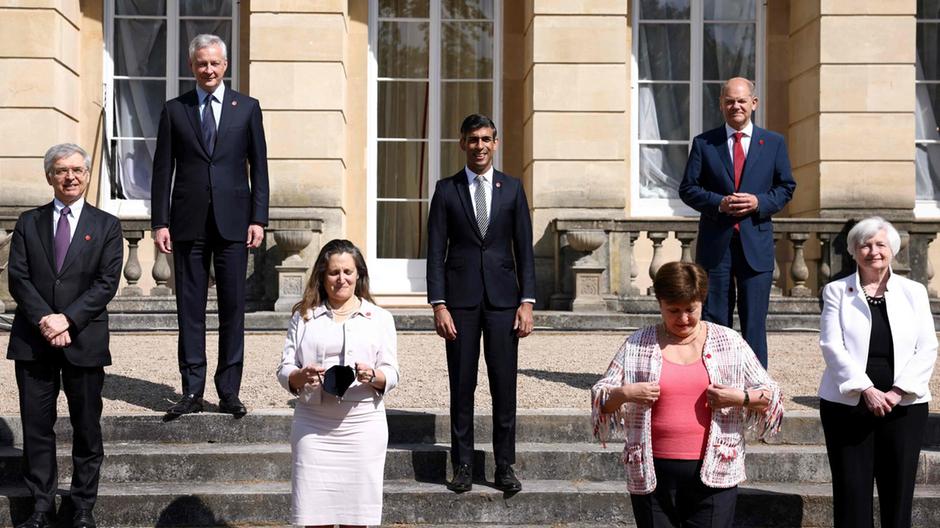6 June. Agreement will result in a minimum corporate tax rate of at least 15 per cent. The Group of Seven high-income countries agreed on a “historic” deal that will result in a minimum corporate tax rate of at least 15 per cent, the UK’s finance minister said. The agreement to reform the global tax system would make it “fit for the global digital age” and ensure technology companies paid their fair share, Rishi Sunak said. “That global minimum tax would end the race-to-the-bottom in corporate taxation, and ensure fairness for the middle class and working people in the US and around the world,” US Treasury Secretary Janet Yellen said. French Finance Minister Bruno Le Maire described the deal as “starting point” and said the G7 would fight “to ensure that this minimum corporate tax rate is as high as possible”. The G7 hopes to reach a final agreement at the July gathering of the expanded G20 finance ministers group, it added.
Finance leaders from the US, Japan, France, Canada, Germany and Italy had been discussing the global minimum tax rate in London with Mr Sunak, in the first in-person meeting since the start of the pandemic, as the part of the UK’s G7 presidency. Under the principles of the reform, “the largest global firms with profit margins of at least 10 per cent” will be taxed more equitably, with 20 per cent of any profit above a 10 per cent margin taxed in countries where they make sales, according to the UK’s finance ministry. It said the G7 “also followed the UK’s lead by giving a commitment to make it mandatory for firms to report the climate impact of their investment decisions – and concrete steps to crack down on environmental criminals”. The agreement comes after US President Joe Biden’s administration gave impetus to stalled global tax talks this year by agreeing to a minimum corporation tax rate of at least 15 per cent last month – well below the average in the G7.
Wealthy nations have struggled for years to agree on a way to raise more tax from large multinationals such as Google, Amazon and Facebook, which often book profits in jurisdictions where they pay little or no tax. This includes Ireland, which currently has a 12.5 per cent corporate levy. It has been resistant to a higher levy. “Even Ireland must understand they have to give agreement to this major breakthrough,” Mr Le Maire said on Friday. The minimum rate aims to prevent major corporations from cheating the system by shifting profits to countries with low corporate tax rates, while also boosting governments’ revenue after the coronavirus pandemic. A G7 agreement to establish a minimum tax rate on big tech and other companies could bring in more than $200 billion a year in revenue for British and EU governments if a higher tax rate of 25 per cent were agreed to by the G7, research released by the European Tax Observatory shows.
Mr Sunak, who greeted leaders by bumping elbows rather than shaking hands to comply with Covid-19 restrictions, told ministers that the rest of the world was watching. “We cannot continue to rely on a tax system that was largely designed in the 1920s,” he said.


Comment here